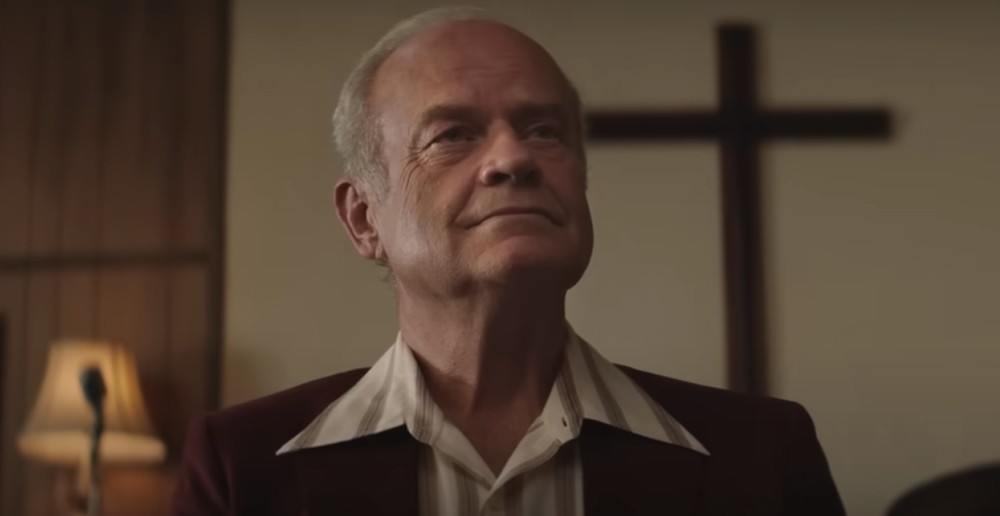When Mel Gibson’s ultra-violent, ultra-religious Passion of the Christ made $612 million worldwide, it was not earning its money from teenagers looking for a night out. Despite its R rating, churchgoers were being bused to theaters by the millions, thanks to the heavy support it received from evangelical Christian groups. Everyone from Billy Graham and Jerry Falwell to Pat Robertson and Chuck Colson came out in support of the film, although the Pope’s supposed endorsement — “it is as it was” — was denied by the Vatican.
Yet faith-based films have quietly been big business in Hollywood for decades now. The latest example of the sub-genre is the Kelsey Grammer-starring Jesus Revolution, which looks at the Southern Californian pastor Chuck Smith and his involvement with the hippie movement in the late Sixties and early Seventies.
The film has already made $30 million at the US box office, doubling its meager $15 million budget with ease. And thanks to its rare A+ Cinemascore, which assesses feedback from moviegoers, it is likely to attract Christian filmgoers for a considerable time to come. It may have been greeted with relative disdain by mainstream critics — James Berardinelli writes that “Jesus Revolution takes a fascinating period of American history – the hippie movement and its associated fallout within the Christian community – and transforms it into a bland, TV movie-of-the-week experience” — but then it was never intended for them.
Its directors Jon Erwin and Brent McCorkle have aimed the film squarely at affluent, middle-class white Christians, who might go and see Ant-Man and the Wasp: Quantumania or Avatar 2, but would prioritize a faith-based film of this nature on a Saturday evening. Erwin has been working with his brother Andrew to create a virtual cottage industry of these kinds of pictures, which have previously included American Underdog, I Can Only Imagine and Woodlawn. If there is a formula, it is as Andrew Erwin described it to Christian Headlines: “Our focus is still firmly rooted within the church, but it’s focused out. And so our goal is to reach out beyond the church walls to engage a generation that’s walking away from the church – as an introduction to Christianity.”
The mainstream likes of Gary Sinise, Shania Twain and Grammer appear in the films, and it is no coincidence that the three of them are conservatives. Jesus Revolution and its ilk are firmly aimed at a Republican audience who might tut at MAGA excesses but warm to Ron DeSantis and are hoping the next president is a suitably God-fearing type. The Erwins have even created their own version of a Marvel, the Kingdom Story Company, so that they might make their profitable films largely unbothered by any external interference. These pictures might never trouble the Academy Awards, but the Gospel Music Association’s Dove award, bestowed on the inspirational film of the year, is a far more coveted accolade in these circles. And the Erwins duly received it for 2018’s I Can Only Imagine, a factual account of the creation of the highest-selling Christian song of all time that grossed $86 million on a budget of $7 million.
Whether one applauds the Erwins’ zeal — both evangelical and entrepreneurial — or would rather venture into the more satanic cinematic realms of Tár (lesbianism! Mahler! Horror!), there can be no doubt that the brothers have found a lucrative niche for their style of filmmaking. As for those who would rather avoid such pictures, well, there’s the potential for a future camp classic in the form of the biblically based period musical The Drummer Boy yet to come. Here’s hoping, anyway.

























